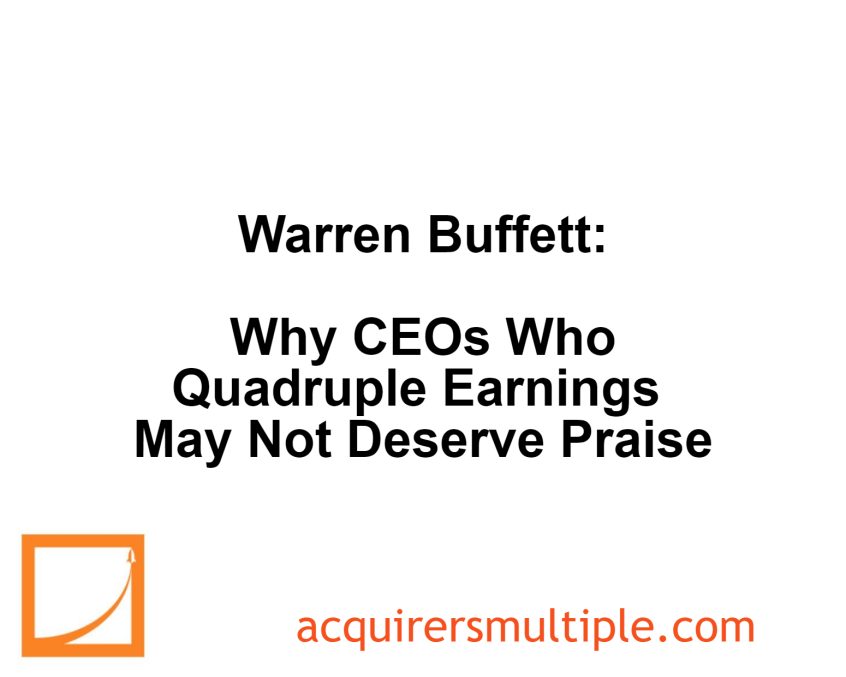In his 1985 Berkshire Hathaway Annual Letter, Warren Buffett discussed the misconception of managerial achievement in companies when it comes to increasing earnings. Saying, that simply increasing capital and earnings without considering the return on capital is not a significant accomplishment. Here’s an excerpt from the letter:
When returns on capital are ordinary, an earn-more-by-putting-up-more record is no great managerial achievement.
You can get the same result personally while operating from your rocking chair. Just quadruple the capital you commit to a savings account, and you will quadruple your earnings.
You would hardly expect hosannas for that particular accomplishment. Yet, retirement announcements regularly sing the praises of CEOs who have, say, quadrupled earnings of their widget company during their reign – with no one examining whether this gain was attributable simply to many years of retained earnings and the workings of compound interest.
If the widget company consistently earned a superior return on capital throughout the period, or if capital employed only doubled during the CEO’s reign, the praise for him may be well deserved.
But if the return on capital was lackluster and capital employed increased in pace with earnings, applause should be withheld.
A savings account in which interest was reinvested would achieve the same year-by-year increase in earnings – and, at only 8% interest, would quadruple its annual earnings in 18 years.
The power of this simple math is often ignored by companies to the detriment of their shareholders.
Many corporate compensation plans reward managers handsomely for earnings increases produced solely, or in large part, by retained earnings – i.e., earnings withheld from owners.
For example, ten-year, fixed-price stock options are granted routinely, often by companies whose dividends are only a small percentage of earnings.
An example will illustrate the inequities possible under such circumstances. Let’s suppose that you had a $100,000 savings account earning 8% interest and “managed” by a trustee who could decide each year what portion of the interest you were to be paid in cash.
Interest not paid out would be “retained earnings” added to the savings account to compound. And let’s suppose that your trustee, in his superior wisdom, set the “pay-out ratio” at one-quarter of the annual earnings.
Under these assumptions, your account would be worth $179,084 at the end of ten years. Additionally, your annual earnings would have increased about 70% from $8,000 to $13,515 under this inspired management.
And, finally, your “dividends” would have increased commensurately, rising regularly from $2,000 in the first year to $3,378 in the tenth year. Each year, when your manager’s public relations firm prepared his annual report to you, all of the charts would have had lines marching skyward.
You can read the entire letter here:
1985 Bershire Hathaway Annual Letter
For all the latest news and podcasts, join our free newsletter here.
Don’t forget to check out our FREE Large Cap 1000 – Stock Screener, here at The Acquirer’s Multiple:




